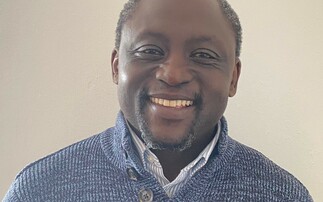Fit for Work began its national rollout last year. Fiona Murphy speaks to Health Management Ltd's Dr Lucy Goundry, medical director of FFW, about how the service has progressed so far
FM: Are there any plans for a big advertising campaign? We've seen big investment in advertising from the DWP on pensions. Will there be anything similar for FFW?
LG: The plan is through various employer stakeholders such as the CBI and the Chambers of Commerce to do media work with employers so that they are more aware. Because clearly they are referring.
With GPs, we're going to have to be a bit more savvy and link it to the fit note page on their screens.
There are things in motion. With GPs it's not a quick fix. Indeed, with employers it's not a quick fix, but it's perhaps easier. And we have some evidence that GP behavioural change takes several years.
They like to see the evidence coming through and that it's working for both them and their patients. Which is fair enough, but it doesn't happen overnight.
So yes is the answer, but there are lot of things to consider. Some of them, for example changing the wording on the Fit Note, requires legislation.
They're not quick fixes. I think the most effective way of having good publicity is for employers who are referring to see that it's beneficial and spread the word.
FM: Currently you have a telephone, email and web chat advice line. Are there any plans to use app technology?
LG: We're a nationwide service, so England and Wales, and NHS Scotland deliver a similar service in Scotland. Covering that space is clearly going to be challenging, because we don't know where the face-to-face consultations are going to crop up. So far the numbers have been small and we've managed it.
If we could use technology, that would be fabulous. It is something we're looking at. Because this is a government contract, the security is enormous.
Our technology doesn't allow us to use things such as Skype. Whether we could develop a purpose-built video linking system so that we can see people, I think would be a really good idea.
Babylon is working with Maximus on a different part of our business and it's very interesting. We're considering that.
FM: Is there anything else you would like to add about how the service has evolved?
LG: A lot of people now know about FFW, or at least have heard of it and don't know the detail. Why not take the plunge and actually try a referral to, and see what you get back? I think that it will be surprisingly helpful.
But it's quite intensive: a 45-minute assessment followed by three or four case management touchpoints. It can be really useful at getting somebody back to work.
Nine times out of ten we actually pick up the phone and speak to the employer as well, assuming we have consent, of course, and say, this person could come back to work with adjustments.
Employers sometimes don't understand adjustments and it's all too difficult. But actually most of the adjustments don't cost anything, are very easy to do and they're temporary to get that person back.
These are things like travelling outside peak time so they can get a seat on the train, perhaps with a shorter lunch hour to compensate. Or working from a different location temporarily so they don't have to travel into London. Very simple things.
Further reading











